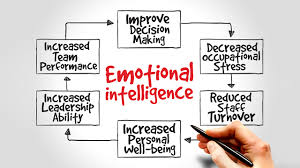How to Build Confidence in Your Learning Journey
Confidence is a key component of success, especially when it comes to learning. Whether you’re tackling a new subject, learning a new skill, or preparing for an exam, building confidence in your learning journey can make all the difference. When you believe in your abilities, you’re more likely to push through challenges, embrace new opportunities, and ultimately achieve your goals. In this article, we will explore several strategies to help you build confidence in your learning journey.
1. Set Realistic and Achievable Goals
One of the first steps in building confidence is to set realistic and achievable learning goals. When you set goals that are clear, specific, and attainable, you create a roadmap for success. Achieving small goals along the way boosts your confidence and motivates you to continue progressing.
For example, if you’re learning a new language, setting a goal to learn 10 new words each week is achievable. As you accomplish these smaller goals, you’ll feel a sense of accomplishment, which reinforces your confidence and keeps you motivated to take on more challenging tasks.
2. Celebrate Your Progress
Learning can sometimes feel like a slow process, and it’s easy to become discouraged if you focus only on what you haven’t mastered yet. To build confidence, it’s important to celebrate your progress along the way. Recognize the small milestones and achievements, no matter how minor they may seem.
For example, if you’re studying for an exam, celebrate the completion of each chapter or section of material. These small celebrations remind you of the progress you’ve made and help you stay motivated to continue.
3. Embrace a Growth Mindset
A growth mindset is the belief that your abilities and intelligence can be developed with effort, learning, and persistence. When you embrace this mindset, you understand that mistakes and setbacks are opportunities for growth, not signs of failure.
Instead of focusing on what you don’t know or can’t do yet, a growth mindset encourages you to focus on how you can improve. By viewing challenges as learning opportunities, you’re more likely to stay confident, even when things don’t go according to plan.
For instance, if you struggle with a particular topic or task, rather than getting discouraged, you can remind yourself that with effort and persistence, you will improve over time.
4. Focus on the Process, Not Just the Outcome
It’s easy to get caught up in the end result of your learning journey, whether it’s passing an exam or completing a course. However, focusing too much on the outcome can lead to unnecessary pressure and self-doubt. Instead, shift your focus to the learning process itself.
Enjoy the journey of acquiring new knowledge and skills, rather than just stressing about the final result. The more you appreciate the learning process, the more confident you will feel in your ability to continue learning and growing.
5. Seek Feedback and Learn from Others
Receiving constructive feedback is one of the best ways to build confidence in your learning. When you’re open to feedback, you gain valuable insights that help you identify areas for improvement and refine your approach.
Don’t be afraid to ask teachers, peers, or mentors for feedback on your progress. Constructive criticism allows you to see your strengths and weaknesses more clearly, which boosts your confidence as you work on improving.
Additionally, learning from others who have successfully navigated similar challenges can be incredibly motivating. Seek out role models or join study groups where you can exchange ideas and tips with others on the same learning journey.
6. Create a Positive Learning Environment
Your environment plays a crucial role in your learning experience. A positive, supportive environment can significantly impact your confidence levels. Find a place to study or work where you feel comfortable and focused, free from distractions.
A clutter-free workspace, adequate lighting, and access to necessary resources can help you stay productive and confident. Surround yourself with people who encourage and support your learning efforts, whether it’s family, friends, or a learning community.
7. Focus on Self-Care and Well-Being
Confidence is closely linked to your overall well-being. If you’re feeling stressed, tired, or overwhelmed, it can be difficult to feel confident in your learning abilities. Taking care of your mental, emotional, and physical health is essential for building and maintaining confidence.
Make time for regular exercise, get enough sleep, eat a balanced diet, and practice stress-reducing techniques like mindfulness or meditation. When you prioritize self-care, you’ll have more energy, focus, and confidence to tackle your learning goals.
8. Challenge Negative Self-Talk
Negative self-talk can severely undermine your confidence in your learning journey. Thoughts like “I’m not good enough” or “I’ll never be able to do this” can prevent you from moving forward. Instead, work on replacing negative thoughts with positive, encouraging affirmations.
For example, if you catch yourself thinking, “I’m terrible at math,” replace that thought with, “I am improving in math every day, and I will keep learning until I get it right.” By challenging negative self-talk and focusing on positive reinforcement, you’ll gradually build confidence in your abilities.
9. Be Patient with Yourself
Building confidence in learning is a gradual process, and it’s important to be patient with yourself. No one becomes an expert overnight, and setbacks are a normal part of the learning journey. Be kind to yourself when things don’t go as planned and avoid comparing yourself to others.
Understand that learning is a lifelong journey, and everyone progresses at their own pace. By accepting that you may need time to master new concepts or skills, you’ll feel more confident and less pressured to perform perfectly right away.
10. Visualize Your Success
Visualization is a powerful technique that can help you build confidence in your learning journey. Take a few minutes each day to imagine yourself succeeding in your learning goals. Picture yourself acing an exam, mastering a new skill, or completing a challenging project. This positive imagery can help reinforce your belief in your abilities and keep you motivated.
The more vividly you imagine your success, the more confident you will feel in your ability to achieve it.
Conclusion
Building confidence in your learning journey takes time, effort, and patience, but it is entirely achievable. By setting realistic goals, celebrating progress, embracing a growth mindset, and creating a positive learning environment, you can strengthen your belief in your ability to succeed. Remember, learning is a process that involves both successes and setbacks, and each step along the way contributes to your growth and confidence.
As you continue your learning journey, keep in mind that confidence is not about perfection—it’s about believing in your ability to learn, grow, and overcome challenges. Stay persistent, stay positive, and enjoy the process of becoming the best learner you can be.


